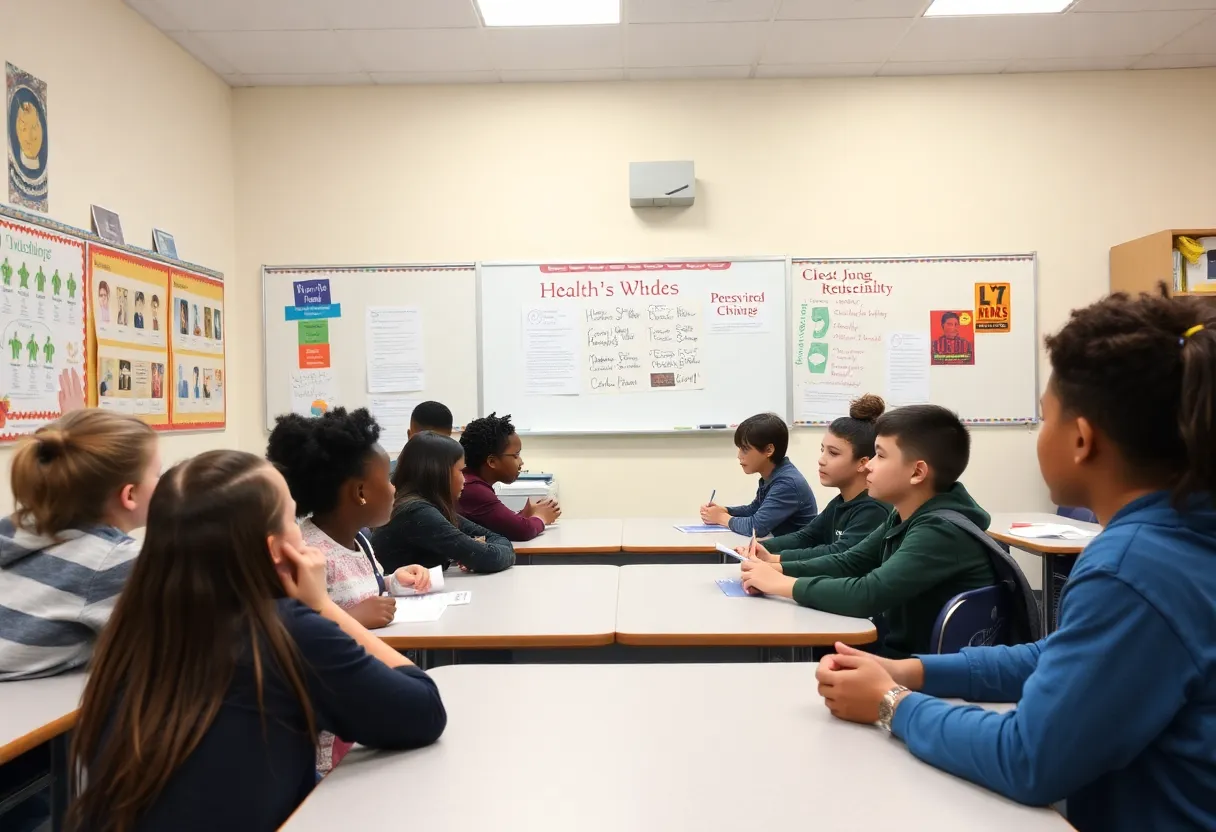News Summary
The Duval County school board is considering changes to health classes and sex education, including gender-based class divisions for grades 6-8. The proposed policy emphasizes abstinence without comprehensive contraceptive education, raising concerns among parents, students, and educators about student safety and wellbeing. A meeting is set for April 1st to finalize the changes, amidst discussions on new state laws impacting the curriculum.
Changes on the Horizon for Duval County Health Classes and Sex Education Policy
In the vibrant city of Jacksonville, excitement and concern are brewing as the Duval County school board sets its sights on revamping health classes and sex education policies for students. As the board reviews these changes, parents, students, and educators alike are keenly watching to see how these adjustments will impact their classrooms.
What’s on the Table?
One of the major proposals currently being discussed involves the possibility of splitting health classes for students in grades 6-8 based on gender. This idea has sparked a variety of conversations among board members, particularly regarding how students who identify as male, female, or nonbinary would be classified in these classes. The intention is to create an environment where students feel comfortable, but the implementation may raise questions about inclusivity and acceptance.
The school district’s superintendent has indicated that any classes would be divided according to the gender students were assigned at birth, aligning with current Florida law. For parents who feel uneasy about these changes, there will be options to opt-out of these classes entirely, ensuring that they have a say in their child’s education.
Keeping Parents Informed
In keeping with the commitment to transparency, the district will take steps to inform parents about these changes. Communication will be delivered through traditional physical letters and electronic methods, ensuring that every parent has the opportunity to stay in the loop.
Sex Education: A Different Approach
Another wave of change comes with the approach to sex education. The proposed policy emphasizes abstinence as the golden standard for students. However, this focus comes with some limitations; notably, there is no mention of contraceptive methods or comprehensive information on pregnancy prevention. This shift raises eyebrows, especially considering that discussions about contraceptives had previously been more robust.
While the policy will include lessons on controlling the spread of sexually transmitted diseases (STDs), this education will be limited to grades 6-12. These conversations are crucial, but the lack of comprehensive contraceptive education might leave students without the tools they need for safe practices.
Final Approval on the Horizon
The Duval County school board is expected to give its final approval to these changes during an upcoming meeting on April 1st. As the wheels of education policy turn, experts are raising alarms that the reduced availability of accurate information on contraceptives could pose risks to student health and wellbeing. Parents and educators alike are urging the board to think critically about how these adjustments might influence student safety.
Legal Regulations at Play
These discussions are not taking place in a vacuum. New state laws are mandating the use of state-approved materials in health education, which could limit the local educational authorities’ ability to tailor the curriculum to the specific needs of their student population. A local public health professor has voiced concerns that these changes may compromise students’ wellbeing and potentially increase the risk of sexually transmitted diseases.
Additionally, legislation is insisting on binary reproductive roles and expects abstinence as the norm in teachings for students from Pre-K through 8. This directive means that discussions around sexual orientation will be largely absent during these formative years, which could influence the understanding and acceptance of diverse identities.
The Road Ahead
As the interim superintendent notes, there is a pressing need for the district to develop its own sex education materials in compliance with these new state regulations. The community eagerly awaits the board’s decision, as the implications of these changes could shape the future of health education in Duval County.
Everyone is hoping for a balanced approach that ensures students are informed and safe, while also respecting diverse identities and needs. Stay tuned for updates as this important discussion unfolds!
Deeper Dive: News & Info About This Topic
HERE Resources
Jacksonville City Council Approves Immigration Enforcement Act
Jacksonville School Incident Highlights Need for Diabetes Training
Florida Lawmakers Protect State Parks from Development
Jacksonville Families Face Increased Fear Amid ICE Raids
Panic in Jacksonville: Immigration Crackdown Prompts Community Concerns
Additional Resources
- Action News Jax: Duval County Public Schools Considering Changing Policy on Sex Ed Curriculum
- Jacksonville.com: PEN America Book Bans Doubled This School Year in Florida and Iowa
- First Coast News: New Law Strips Local School Districts’ Authority on Sexual Education
- Wikipedia: Sexual Education
- Jacksonville.com: Duval School District Creating Its Own Sex Education Material Citing Law






